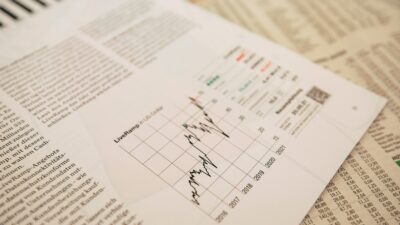Ranjit Voola and Mike Den HartogRanjit Voola, Mike Den Hartog,
text

The pandemic, poverty and business
Developing countries now account for three quarters of new COVID-19 cases: The next phase in this pandemic is unfolding in the context of poverty.
The key insight
Developing countries now account for three quarters of new COVID-19 cases: the next phase in this pandemic is unfolding in the context of poverty.
Recent evidence from UNU-Wider suggests over a billion people are living in poverty and that the global poor could be losing $500 million per day due to the impact of the pandemic. While countries such as Australia, have been successful in suppressing the virus, in other countries poverty is a barrier to containing the outbreak. It is in everyone’s benefit to deal with structural issues such as poverty, arising from the pandemic.
Countries including Australia are looking at a business-led economic recovery. Coming out of the pandemic the initial reaction of companies will be to focus exclusively on the bottom-line. However in order for businesses to effectively lead this recovery and to differentiate themselves from others, they have to deal with the inherent issues arising from the pandemic, including poverty, job losses and other social issues such as gender inequality and hunger.
In 2019 The Business Round Table of CEOs redefined the purpose of business to stakeholder value rather than shareholder value
Increasingly consumers, governments and civil society expect businesses to broaden their purpose.
Companies that proactively take on social issues such as poverty alleviation (at a profit) are more likely in the long run to both economically lead countries out of the pandemic, and to gain long-term advantages that have commercial benefits.
Recent evidence from UNU-Wider suggests there may be over a billion people living in poverty and the global poor could be losing $500 million per day due to the impact of the pandemic. In addition to increases in the poverty headcount, we find that the intensity and severity of poverty is also likely to be exacerbated. The Economist magazine labels this as the “great reversal” – the gains made alleviating poverty in the last few decades have been reversed by COVID-19.
There are concerns that the COVID-19 pandemic has halted globalisation and in turn its role in reducing poverty in developing countries. In response, firms in the United States and Europe will be pressured to shift away from long supply chains and build their capabilities in producing “essential goods” domestically. If so this will significantly impact trade, especially from developing countries. In the crisis we see today there is little mention in the policy and public discussion of the impacts of the pandemic on developing countries, let alone the economic impacts on the poor in these countries. Retreating from developing countries during this time would be an unforgettable mistake for the USA and Europe for moral, economic and political reasons.
COVID-19 offers two options: rebuilding global collaboration based on shared interests, education, and support for those in need, or an increasing focus on national short-term interests that will inevitably lead to the next crisis (be it economic, political, etc.) and reduce the capacities of these countries to cope with the crisis.
COVID-19 also highlights why dealing with global poverty is critical if the world is to effectively overcome the pandemic. Developing countries with increasing poverty are unable to contain the virus, posing a longer-term risk to countries such as Australia and New Zealand that have suppressed the virus. Poverty is itself a barrier to taking virus suppressing actions, including social distancing, testing and good hospitals. For example, in India, when the government started the lockdown, the 139 million migrant workers who depended on work in the cities for their daily food, attempted to return to their villages sometimes walking or cycling 100s of kilometres.
Due to the sheer number of the migration, adhering to social distancing was not an option, carrying the potential to take the virus back to thousands of villages. This in turn has risks globally. Firstly, it will impede societal and economic recovery in countries such as India, resulting in falling economic productivity including engaging robustly in trading relations with other countries. Secondly, it may lead to a second wave of infections in countries that have effectively suppressed the virus (due to future international travel). Tackling poverty is not only a local issue: poverty alleviation is a global issue that all countries must collectively work towards.
Businesses have been heralded as leading the economic recovery out of the COVID-19 recession. The Prime Minister of Australia, Scott Morrison, argues for a business-led recovery, as opposed to a government-led recovery. The big question is what are businesses going to do? Although, the initial gut reaction of companies will be to focus exclusively on the bottom-line coming out of the pandemic, in order for businesses to effectively lead this recovery and to differentiate themselves from others, they have to deal with the inherent issues arising from the pandemic, including poverty, job losses and other social issues such as gender inequality and hunger.
It is evident that governments on their own cannot lead the economic recovery and will rely on businesses to play their role. Whilst there are several businesses engaging with new CSR initiatives to help combat COVID-19, such as Ambev producing 500 thousand units of gel alcohol for hospitals in Brazil, these initiatives tend to be small-scale efforts that do not address the challenges in a holistic way. Nor will unitary efforts bring the range of resources and expertise needed to create sustainable long-term solution for the problems brought by COVID-19. Which is why it is vital for businesses to look at ways they can create long term sustainable solutions that help alleviate the significant increase in worldwide poverty.
COVID-19 has already exacerbated existing food insecurity, which affects a fifth of the population in sub-Saharan Africa. African agriculture revolves around smallholder farms, which have long experienced underinvestment and poor productivity. Farmers face challenges accessing many fundamental resources, including financing, storage, quality inputs, education, logistics and transport. Which creates the opportunity for businesses, particularly those in the financial sector as well as the food and beverage industry, to strengthen the food value chain from its roots in mainly smallholder farms to tables around the world.
Prior to COVID-19, there has been momentum growing in the business community relating to their purpose and their role in society. For example, in August 2019, 181 CEOs in the US, formally changed the purpose of business to include servicing customers, employees and other stakeholders, not just the shareholders. This suggests a significant shift in focus towards stakeholders.
More importantly, with the ratification of the 17 Sustainable Development Goals (SDGs) in 2015, businesses have been challenged to tackle these goals by the United Nations, national governments, consumers, employees as well as some CEOs, not only as part of their corporate social responsibility, but as a core issue in their strategies. Therefore, those businesses that embrace this broadening notion of the purpose of business and assist in economic recovery are likely to have several benefits going forward.
We need more innovators such as Saral Designs, a small startup distributing sanitary pads to women in rural areas in India: This company of 18 employees, not only repurposed its sanitary pad machines to create masks but is now building an automatic machine to produce 60,000 masks per day for frontline workers and citizens.
This business-led recovery has to deal with issues of poverty exacerbated by the virus. There is an opportunity for businesses to hone their skills in developing cross-sectoral relationships with governments, NGOs and civil society, all of which will be a key advantage for future-orientated businesses. Companies that proactively take on social issues such as poverty alleviation (at a profit), are more likely to lead countries out of the pandemic and gain long term advantages with inherent commercial benefits.
This is part of a series of insights related to Coronavirus (COVID-19) and its impact on business.
Ranjit is an Associate Professor of Marketing at The University of Sydney Business School. His research is focussed on the Sustainable Development Goals and reimagining the purpose of for-profit firms.
Mike is a Program Manager and Analyst at Google. He has a keen interest in stimulating economic growth in developing countries and alleviating poverty.
Share
We believe in open and honest access to knowledge. We use a Creative Commons Attribution NoDerivatives licence for our articles and podcasts, so you can republish them for free, online or in print.







